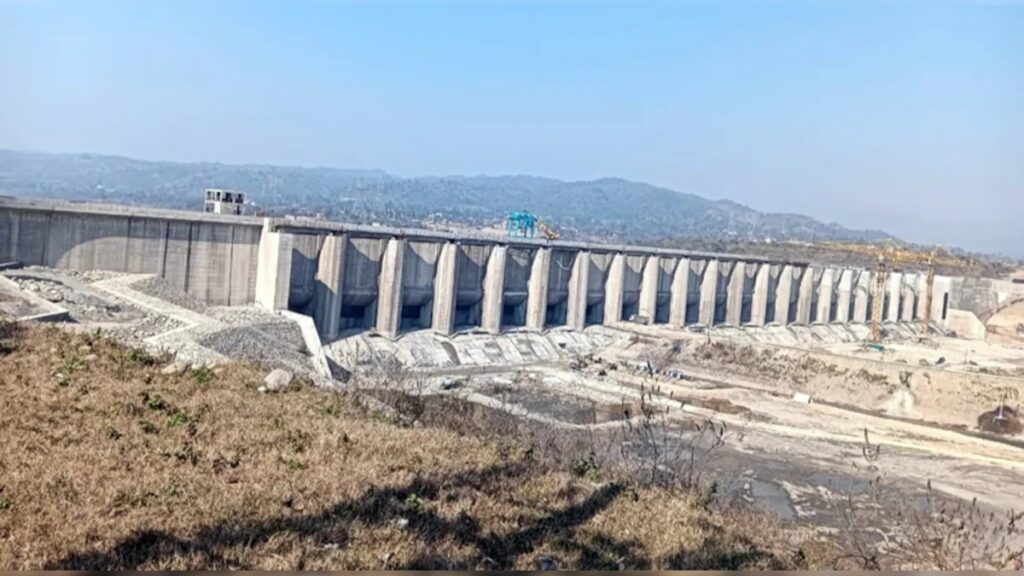India Stops Water to Pakistan: A Deep Dive into the Geopolitical Crisis

Concern about India’s action to restrict India stops water to Pakistan is a key topic in the conflict between the two. For a long time, both countries have been at odds over water, and recent ceasefire violations have only increased the problems. Because of the halted Indus Waters Treaty and reduced river flow, the condition is now a crisis that risks both nationwide peace and the well-being of a large population. The purpose of this article is to examine what would happen if India stops water to Pakistan, considering the wider problem, the main causes, and what may happen if things get worse.
India stops water to Pakistan, Dispute Gets More Serious
Water being cut off to India stops water to Pakistan has been a news headline heard around the world in recent years. To learn why this is happening, we need to look at the background and the 1960 treaty that both countries signed. For many years, the treaty regulated how India and Pakistan divide the water from six rivers that flow from India, so water has always been an essential resource for them. Still, India has often resolved its concerns on its own by redirecting water for its farming and industry.
India’s Decision to Suspend the Indus Waters Treaty Caused the Crisis
Most recently, India stopped following the Indus Waters Treaty, an agreement that had majorly helped to preserve peace. During the suspension, India stops water to Pakistan has cut back or shifted water from important rivers like the Chenab and Jhelum as they flow into Pakistan. Because of the halt in the supply, Pakistan is now facing a crisis, primarily due to the lack of agricultural water. The temporary blocking of water not only affects Pakistan’s water supplies but has also caused more problems between the two countries.
What Will Pakistan’s Water Crisis Look Like in 2025?
Pakistan is due to face critical water shortages by 2025 as a result of water being diverted by India along the mighty Indus. Because Thailand’s population is rising and farming relies on irrigation, a lack of water could jeopardize food production. The India Stops Water to Pakistan supply from the Indus and its branch rivers is already causing farmers in Punjab, Sindh, and similar areas to get lower yields.
Reduced flow of the Chenab River is a serious problem for Pakistan.
Pakistan feels the strongest effect of India’s actions through the reduction in Chenab River water, used for important irrigation in Pakistani fields. Due to India stops water to Pakistan, the river is flowing at a lower level, which is reducing harvests and leaving less water for millions across Pakistan. A lack of water in the river threatens both agriculture and the health of millions who depend on it for drinking water and sanitation.
India’s Prime Minister Protects Public Water Supply and Angeles Entrances, Announces Water Blockade to Pakistan
Given what Prime Minister Modi said, many consider it a diplomatic tactic aimed at influencing Pakistan. Cutting off water to major rivers like the Chenab and Jhelum is just one part of a campaign to harm Pakistan’s economy and agriculture. Still, this decision has major impacts, since it raises the India-Pakistan dispute over the waters to its most critical level, pointing toward turbulence in the region.
Analysis of How the 1960 Indus Waters Treaty Block has Affected the Region
Because the Indus Waters Treaty was suspended, peacefully managing these water resources has come to a halt. What was once celebrated for settling a major argument between India stops water to Pakistan has now led to major conflict between the countries. Because this agreement has been invalidated, it is unclear if water can be shared between the two countries fairly in the future.
Pakistan is at risk from the ongoing agricultural water shortage.
As agricultural water supply in Pakistan keeps shrinking, the country may experience a crisis. Since the water in rivers has fallen sharply, people who depend on farm irrigation are facing serious difficulties. A lack of India Stops Water to Pakistan could end in crop losses, starvation and economic ruin for its citizens. Due to climate change affecting water flow, Pakistan’s major economic focus on agriculture is at high risk.
India is Developing Projects to Control and Divert Water Resources
As India tries to use its river control, its plans for diverting water are becoming more and more obvious. Dams and canals have helped India direct ample water to its parts, and particularly to Jammu and Kashmir. As a result of this action, India Stops Water to Pakistan has to manage its water resources, especially because the Chenab and Jhelum rivers it depends, are at risk.
Baglihar Dam Water Release: The Issue and Its Results
For years, the decision on water releases from the Baglihar Dam has raised tension between India stops water to Pakistan. While India says it can use water from the dam for farming and generating electricity, Pakistan believes this is against the Indus Waters Treaty. Pakistan has accused India of deliberately controlling the water to damage its farming community, which has created diplomatic tension.
Jhelum River Water Disputes Forces India to Release Water
Pakistan’s leaders are also worried by the increased releases from Jhelum River in India. Pakistan’s ability to use water from the Jhelum has been greatly reduced because India manages the water right from its source. The way water supplies are being handled by the state has put Pakistan at greater risk of drought and intensified the crisis.
Examining Indus River Water Politics in Wider Terms
There is much more to Indus River water politics than just the way the river flows. Conflicts between India and Pakistan and other areas of politics influence how water is distributed. Along its common border, the river system has caused conflicts as well as boosted cooperation. Because these problems have not been settled peacefully, the nations are now at odds, greatly hurting their people.
The Effects of Pakistan’s Water Threat: A Look Beyond
Pakistan is currently dealing with a genuine and increasing water security concern. Because of how India is using water resources, Pakistan might experience serious unrest because of water issues in the future. When there is no water in rivers and the fields are empty, the risk to Pakistan’s safety is easier to see. Not being able to agree with India on water sharing puts Pakistan at a disadvantage everywhere.
Water and Terrorism India Pakistan: A Breeding Foundational Relationship
With growing unrest in South Asia, water and terrorism are cropping up together in India and Pakistan. Because water is becoming scarcer, tensions between groups have increased, creating a possible source of violence. If the shortage of water continues, some extremists may profit by using it to promote their goals and increase chaos in the area.
Successfully managing water in the Indus Basin can solve the current crisis. Both India stops water to Pakistan should team up to see that water resources are managed well and fairly. If the region is not well managed, it may suffer more crises, and both nations will feel the consequences.
What to Expect After Pakistan Water Treaty Legal Action: The Future Ahead
Pakistan is preparing to take legal action if India stops water to Pakistan to punish India. Pakistan is hoping to use these challenges to recover the water access it should have under the Indus Waters Treaty. Making a case in international courts might be a useful approach, though it not yet certain how effective they could be.
Effects of Indian Water Treaty Violation and What Can Be Expected
The India’s stops water to Pakistan treaty violation should be considered a significant issue. If the Indus Waters Treaty rules against India, the results might be very serious. Fighting in Kashmir could also hurt India’s respect on the world stage and risk getting even more serious with Pakistan, which could be disastrous for both.

The Indus Water Treaty 1960 Filled a Gap in History
India and Pakistan established a plan to share water when the Indus Water Treaty of 1960 was signed. Suspending the treaty has caused its future to be questioned. Will the world honour the treaty, or will it just go unfulfilled? We will find out in the end.
Conclusion
Now that India stops water to Pakistan, the problem has reached its highest level. India is planning to divert water, and its refusal to follow the Indus Waters Treaty is driving Pakistan closer to a full-scale water war. Should matters get worse, Pakistan could suffer damage to its economy, farms, and society. Other countries should get involved to resolve this problem before it becomes more serious. Taking away India stops water to Pakistan might only be a first step in a much bigger conflict if discussions do not resolve the problem.




